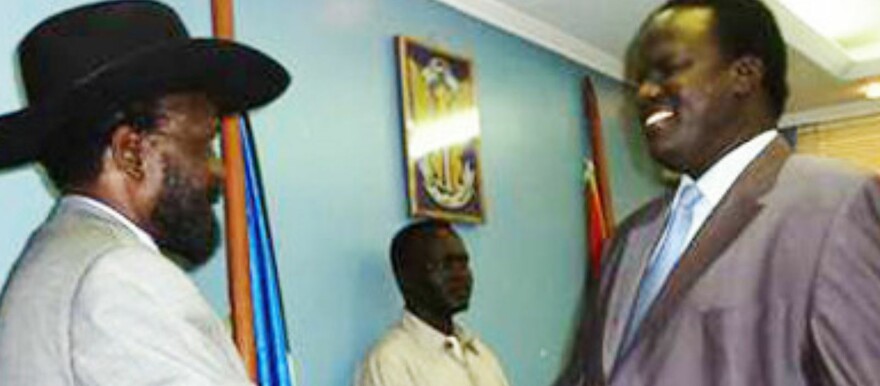South Sudanese President Salva Kiir has issued an unexpected decree sacking the governor of Unity state. He is a close ally of the president.
Kiir issued a presidential decree on Monday night announcing that Unity state Governor Dr. Joseph Nguen Monytuil has been removed from office immediately and replaced with Riek Biem Tap Long.
Monytuil had held the governorship of Unity State since June 2020 as part of the 2018 revitalized peace agreement. The announcement of his sacking was made on state-owned television.
President Kiir did not give any explanation for the sacking of the Unity state governor – apart from citing his constitutional powers to appoint and remove public servants.
In April last year, a United Nations-backed panel of investigators cited Joseph Monytuil for being responsible for gross violations of human rights as well as other senior government and military officials in Unity State.
In another decree, President Kiir also removed Stephen Weiu Mialak from his position as Chief Administrator of the Ruweng Administrative Area and replaced him with Tiop De Monyluak.
Edmund Yakani, the Executive Director of the Community Empowerment for Progress Organization (CEPO), welcomed Riek Biem’s appointment as the new governor of Unity state.
“Riek is a hard-working person with a track record in military justice at the Ministry of Defence. The new governor should take practical actions to reconcile the communities of the state. Unity state has resources, but those resources require genuine and transparent utilization,” Yakani told Radio Tamazuj.
South Sudan is governed by a transitional government created after a 2018 peace agreement between President Salva Kiir, opposition leader Riek Machar and other political figures.
The controversy surrounding the timing of general elections, combined with the incomplete implementation of the peace agreement, poses significant challenges to the country’s democratic transition.




